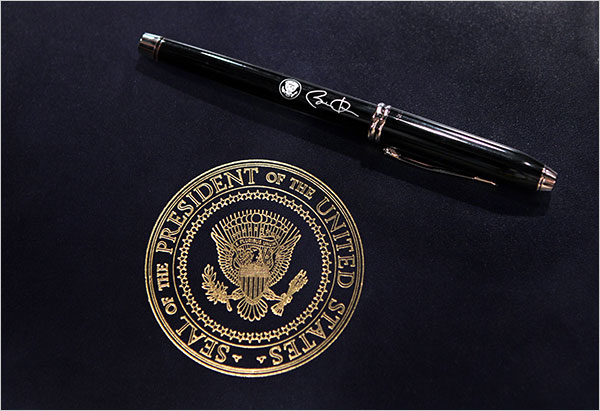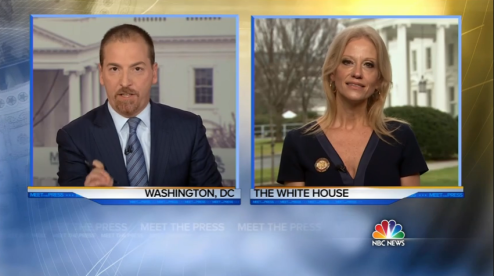Christian, Conservative, Immigrant: Perspective on Trump’s Exec Order

My first memory of America was my fourth birthday party at Chuck E. Cheese. God bless America.
Even as an immigrant, I typically don’t feel like an outsider. Honestly, sometimes I forget that I’m Korean. Not that I suddenly think I’m white… I just don’t think about it. I do remember, though, when my legal status was thrown in my face like a bucket of ice water: waiting for hours in line at the INS office to get a green card application submitted, sitting in U.S. History class realizing that I could be drafted into the U.S. military even though I didn’t have the right to vote, checking off the “Permanent Resident” box just under the “U.S. Citizen” box on every form. Getting a special exemption from Korea’s mandatory military service law at the Korean Consulate when I went on a mission trip to East Asia. Green passport. Getting an 8/10 on my citizenship test because the immigration officer didn’t like my handwriting. I’m literally a B Class citizen.
Yep. That’s what it’s like. I tell you this because I have a special appreciation for the big time coverage we’re seeing in the news about the fight over immigration, the debate over what to do with the “dreamers”, and now, most loudly, what’s going on with the President’s executive order. Don’t get me wrong, there are a lot of things I can’t begin to understand; I was never a refugee fleeing from the horrors of war, nor did I ever fear the threat of deportation. And yet, as an immigrant, I still wrestle with where I stand on all the craziness of what’s going on in our country today. After much soul searching, I’ve gotten down to a few realities I feel I need to cling to:
Facts are real, but so are feelings
One of the most interesting things about this story of Trump’s executive order is listening to the narrative that’s being told from both sides of the debate. What are we to do? What’s really real? In what so many are starting the call the “post-truth” era, trying to discern what is or isn’t fact (or alternative fact, I guess) can be a terrifying minefield. Despite the whirlwind of activity on the TV, radio, social media, it’s important to recognize that A) there are indeed real facts of what the executive order is AND what its consequences (the Gospel Project published a great article concisely explaining the facts of the executive order… check it out here), intended or otherwise, are, and B) that no matter what the facts are, people’s feelings are just as real. Communication, we learned back in high school, is just as much about what is received and understood as it is what is being broadcast. 
I’m sure most of us have seen the now infamous Meet the Press interview between host Chuck Todd and presidential advisor Kellyanne Conway. After watching it a few times and processing what I felt about it, the most striking thing I took away from the whole exchange wasn’t the “alternative facts” line, but the way Conway shut down the conversation by telling Todd, “don’t be so overdramatic.” Dismissing people’s feelings may feel good, but it makes meaningful conversation impossible.
As a Christian, yes, I have feelings about the executive order. Those feelings are real. And so are your feelings. Acknowledging that our feelings, even if they are at odds, are real and valid is the first step in being able to have a meaningful conversation about what’s happening.
 God loves Refugees, period
God loves Refugees, period
Sometimes I wonder if we realize we’re projecting our own values and feelings onto God’s character. I mean, we do it. I just wonder if we REALIZE when we do it. The question of whether the refugees and immigrants who are directly impacted by the executive order, most notably the Syrian refugees that are being barred indefinitely from entry into the United States, should or shouldn’t be allowed in is in one sense a purely technical, bureaucratic issue. The established institutions of our country have certain rights and privileges they can exercise, whether we like them or not. If enough of us don’t agree, there are channels for us to affect those rights and privileges.
The spiritual question, the question of what God thinks of refugees, however, isn’t really about immigration law. I mean, it affects how we respond to the laws of our land, sure, but let’s be very clear, God does speak about how he feels about refugees and immigrants:
“For the Lord your God is God of gods and Lord of lords, the great, the mighty, and the awesome God, who is not partial and takes no bribe. He executes justice for the fatherless and the widow, and loves the sojourner, giving him food and clothing. Love the sojourner, therefore, for you were sojourners in the land of Egypt.
Deuteronomy 10:18
This is actually just one of many, many passages all throughout scripture, both old and new, that talks about God’s heart for the vulnerable parts of society. Whatever you think of the right the president has to restrict immigration, we have to be real with ourselves, God loves refugees. God defends widows. God fights for orphans. What you decide to do with that reality, whether you believe as Christians we’re called to accept them into our country or find a better place for them outside of our country… well that’s between you and the Lord.
Putting your Trust in God, not the President isn’t just sentiment
Finally, there’s been something that’s been bugging me ever since the DNC and RNC nominated their candidates way back like a hundred years ago when we were talking about candidate Donald Trump and candidate Hillary Clinton. It’s something I heard all the time in church and read in articles:
“We trust in God, not in the President”
Okay.
Sure.
The thing that bugs me most about that statement is that we use it almost as a way to shrug off the confusing, emotionally taxing, socially frustrating realities we’re facing now. What’s interesting is that trust isn’t just a sentiment. It’s not just something you say to yourself so you can sleep at night. It’s not something you throw out in conversation to sound like you’re put together or to cool off a fight. Trust means action. Just like love isn’t just sentimentality – love for someone necessarily comes with activity, sacrifice, evidence -trust demands proof.
What does that mean practically for Christians to “trust in God” in the midst of a really tumultuous political and social environment? It means being open to listen to other people’s stories, victories and traumas because you believe that since God is your vindicator, you don’t need to win debates. It means focusing on caring for people’s needs in painful circumstances without over analyzing the political statements it makes. It means preaching the gospel based on the future hope of Jesus’ return and the promised resurrection. It means being kind, patient, generous and gentle. You say you trust in God? Prove it.
I suppose you read this and make assumptions about where I stand on these issues. I hope you get to this point and I’ve left you guessing on what my position is on immigration, border protection, and politics… because where I stand on those issues, my opinions, are not the point.
This isn’t about what you think… it’s about HOW you think. Because the how is so much more important.
Bottom Line: Align your way of thinking to match Jesus’ call on our lives to live kingdom-mindedly.
More in Devotionals
June 3, 2023
Exodus 1 Devotional ThoughtJanuary 18, 2022
Should Christians Be Involved in Politics?December 24, 2020
Advent 2020: Promise
Leave a Comment
Comments for this post have been disabled.